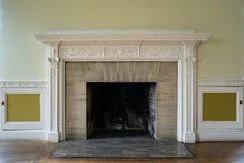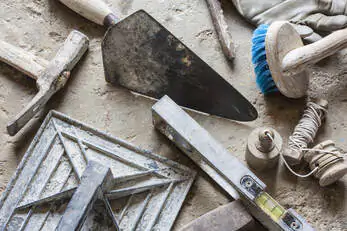
Noticing cracks or uneven floors? These may be early signs of foundation problem. Doors sticking and misaligned windows are also indicators. Addressing issues promptly can protect your home’s structure.
Whether that is your home, office, or warehouse, damaged foundations and cracked walls not only wreak havoc on the resale value, but also makes them hazardous. Before you send in a masonry restoration contractor, make sure that the damage that is in your building isn’t strictly cosmetic. Sometimes it may show a deeper problem and require some important repairs.
For example, while some cracks may seem innocuous, it can be a sign of a sinking foundation. If you see this in your foundation, it’s a smart idea to contact a foundational support expert soon as you can. By leaving structural cracks, you are not only compromising your property value, but you’re also compromising your safety.
The ground naturally shifts over time, and some buildings sit on a more dynamic ground. Massachusetts also holds some of the country’s oldest buildings, and many were made out of brick, or similar. If you have one of these colonial houses and see large cracks, there is a good chance that you have some serious structural issues brought on by time. Salty air and moisture from the nearby sea can lead to erosion over time as well.
Signs of problems Inside:
Cracks on the ceiling or drywall are a sign of a foundational issue. Another sign is doors and windows not shutting the way they should. Bowing, and sagging floorboards are also a sign of foundational problems.
If you go into your basement and see a leaning foundational beam, this is also a bad sign. If there is a leak in the basement, this is an indicator as well.
Signs Outside:
If you notice spaces near your doors and windows or your porch drooping, then you may have foundation integrity issues. If you notice that your chimney is leaning, this also indicates problems.

The most telltale sign you have a problem is cracks in your bricks.
Different Types of Cracks And Their Meanings
Not all cracks are created equal. Depending on their size and direction, they point to different issues and come with their own set of solutions. Here are some of the most common cracks:
Stair-Step Brick Cracks
These stair step shaped cracks are normally located on the exterior walls of a brick building. They allude to a shifting of the foundation and require a professional mason to address. This type of crack forms when bricks separate from each other when the foundation moves. This is common in the basement of older homes, and is normally accompanied by leaks. Therefore, if you have an older, brick home, pay attention to leaks, and have your place professionally inspected once in a while to avoid permanent damage.
Horizontal Cracks In The Brick
If you find horizontal cracks on your bricks, it’s a sure thing that you have serious foundation problems. This normally occurs when the ground around the building is pressing against its foundation, bowing the walls inward. It’s this bowing that causes cracks. Untreated, the crack will manifest further, which will eventually result in a wall collapsing. The worst-case scenario is that a foundational wall falls, weakening your entire building to the point of collapse.
If you see this sort of crack, immediately seek professional masonry help for repair. The integrity of your investment, and the safety of the people who occupy it, demand it.
Vertical Cracks
Like horizontal cracks, vertical cracks are usually signs that your building’s foundation has integrity issues. These sort of cracks are normally caused by the soil around your building shifting. After a multiple small shifts, eventually, it compounds and leads to these long, vertical cracks. If left untreated, these cracks can form into larger ones, eventually leveling entire walls, beams, and other supporting structures. If you notice cracking drywall and bowing floors, that is an additional indicator that you need to hire a professional mason.





